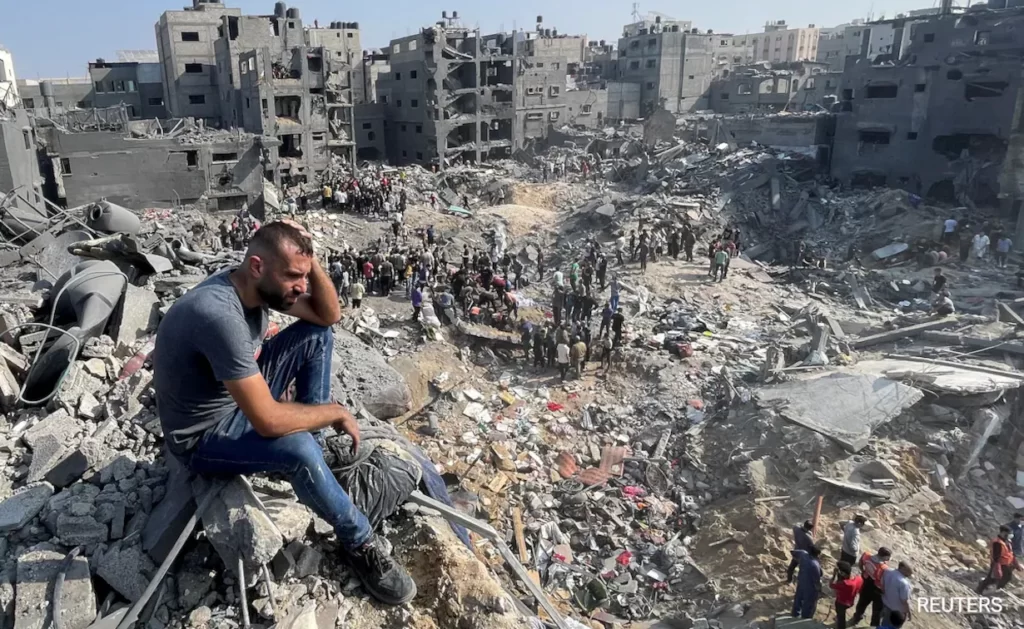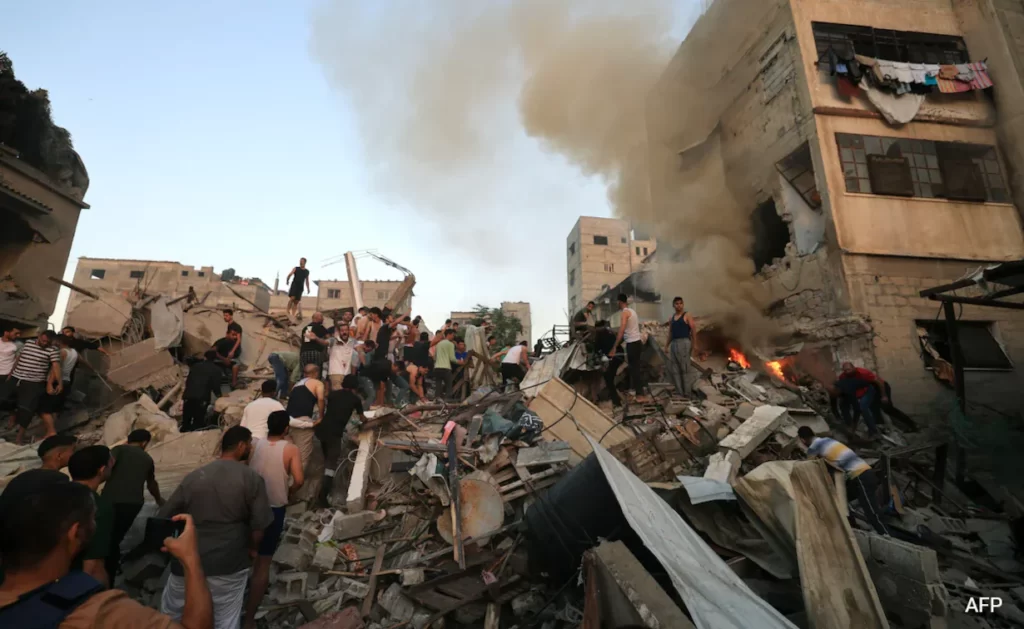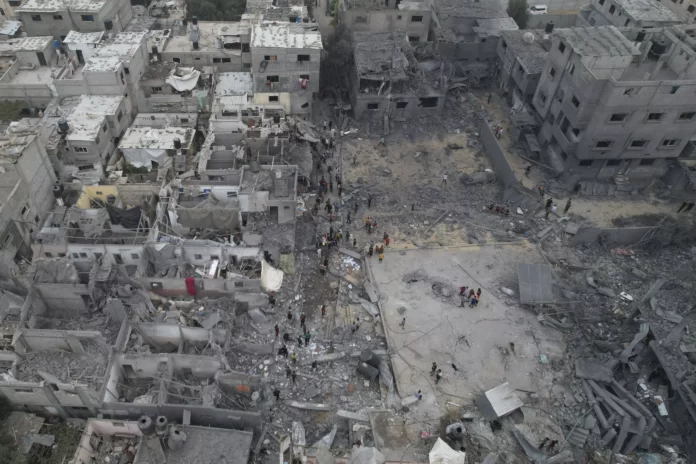The Israel-Hamas conflict has taken a devastating toll on Gaza, with the death count surpassing a grim milestone of 25,000. The prolonged war has inflicted profound suffering on the Palestinian territory, marking one of the deadliest chapters in the ongoing conflict.
As the violence continues unabated, the escalating death toll reflects the deepening humanitarian crisis in Gaza. Civilians, including women and children, bear the brunt of the conflict’s impact, facing the harsh reality of daily life under the shadow of airstrikes, bombings, and widespread destruction.
The relentless cycle of violence between Israel and Hamas has led to a staggering loss of life, with families torn apart and communities shattered. The toll on Gaza’s infrastructure, already strained, further compounds the challenges faced by its residents, exacerbating issues of access to basic necessities such as clean water, healthcare, and shelter.
International humanitarian organizations have raised alarms about the dire situation in Gaza, emphasizing the urgent need for ceasefires and diplomatic solutions to prevent further loss of life. The United Nations, along with various nations and NGOs, continues to call for an end to hostilities and the initiation of dialogue to address the root causes of the conflict.
The complex geopolitical dynamics surrounding the Israel-Hamas conflict have hindered swift resolutions. Efforts to broker peace have faced numerous obstacles, with each side entrenched in deeply rooted political, historical, and territorial disputes.
The toll on human lives and the staggering number of casualties underscore the imperative for a comprehensive and sustainable resolution to the conflict. The international community faces a pressing responsibility to work towards a just and lasting peace that respects the rights and dignity of all parties involved.
The ongoing situation in Gaza emphasizes the need for a renewed commitment to diplomacy, dialogue, and international cooperation. Beyond immediate ceasefires, a comprehensive peace process addressing the grievances and aspirations of both Israelis and Palestinians is essential for building a foundation for long-term stability in the region.
The toll of 25,000 lives lost in Gaza is not just a statistical figure; it represents individual stories, families shattered, and a community grappling with the profound impact of protracted conflict. As the world witnesses the unfolding tragedy, the call for a collective commitment to peace, justice, and the well-being of all people in the region becomes more urgent than ever.

The international community, including influential nations and diplomatic entities, must leverage their roles to facilitate a meaningful and inclusive peace process. Prioritizing the protection of civilians and addressing the root causes of the conflict should be at the forefront of these efforts.
Humanitarian Crisis and Urgent Aid
The escalating death toll in Gaza is accompanied by a deepening humanitarian crisis. Beyond the immediate need for ceasefires, urgent humanitarian aid is required to address the pressing needs of the population. Access to food, medical supplies, and essential services is increasingly limited, placing the most vulnerable at heightened risk. The international community’s commitment to providing timely and adequate assistance is crucial in mitigating the suffering and preserving the dignity of those affected.
The Impact on Future Generations:
The protracted Israel-Hamas conflict not only exacts a toll on the present but also casts a long shadow over the future, particularly for the younger generation in Gaza. Children growing up amidst the trauma of conflict face profound challenges in terms of physical and psychological well-being, education, and opportunities for a better life. Investing in the future of Gaza requires not just immediate relief efforts but sustained initiatives that empower the youth and offer them hope for a brighter tomorrow.
Diplomatic Solutions and Regional Stability:
Resolving the Israel-Hamas conflict extends beyond immediate humanitarian concerns. Diplomatic solutions are imperative for achieving lasting stability in the region. The involvement of key stakeholders, regional powers, and the international community is essential in fostering dialogue and negotiation. Addressing the root causes of the conflict and working towards a two-state solution that respects the rights and aspirations of both Israelis and Palestinians is paramount for establishing a foundation of enduring peace.

Global Responsibility and Advocacy:
The magnitude of the crisis in Gaza demands a unified global response. Nations, organizations, and individuals around the world have a shared responsibility to advocate for peace, condemn violence against civilians, and support initiatives that facilitate dialogue and understanding. Grassroots movements, civil society organizations, and concerned citizens play a pivotal role in raising awareness, pressuring leaders to act responsibly, and fostering a culture of empathy and solidarity on an international scale.
A Call for Hope Amidst Tragedy:
While the current situation in Gaza is marked by tragedy, there remains a call for hope and resilience. History has shown that conflicts, no matter how entrenched, can find resolution through sustained efforts, dialogue, and the shared commitment of all parties involved. The international community’s unwavering dedication to promoting peace, justice, and human rights will be instrumental in paving the way for a brighter future for the people of Gaza.

